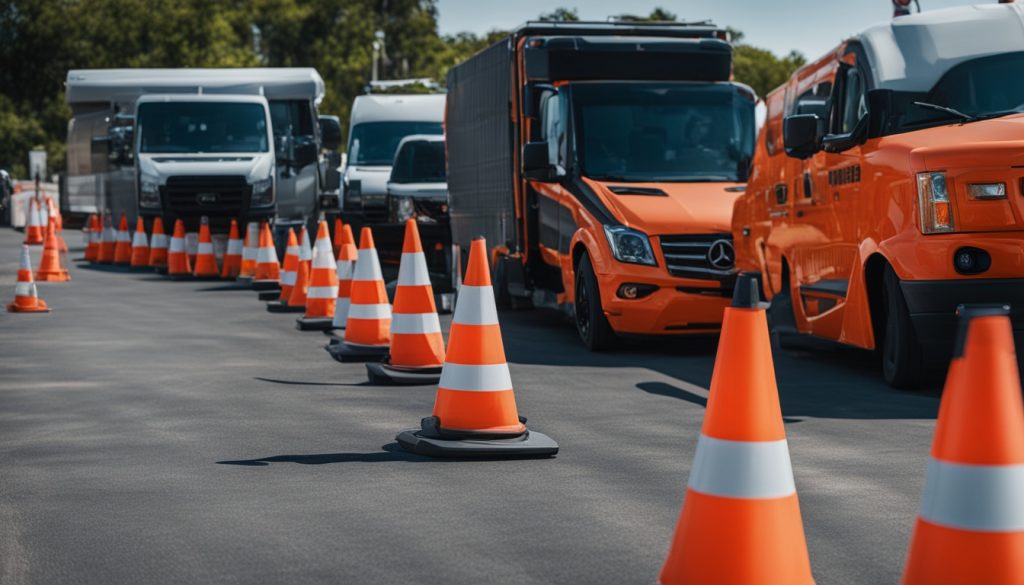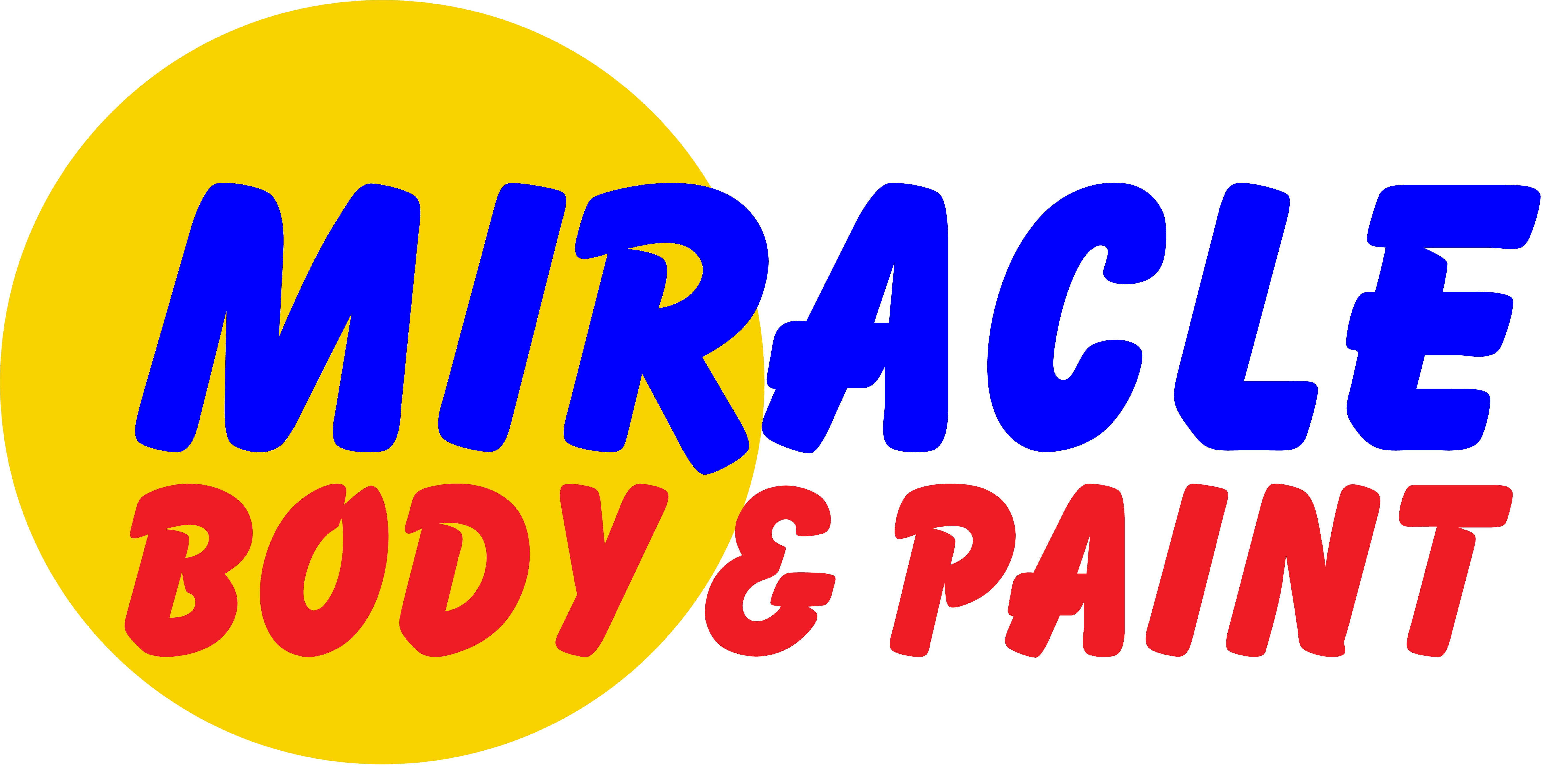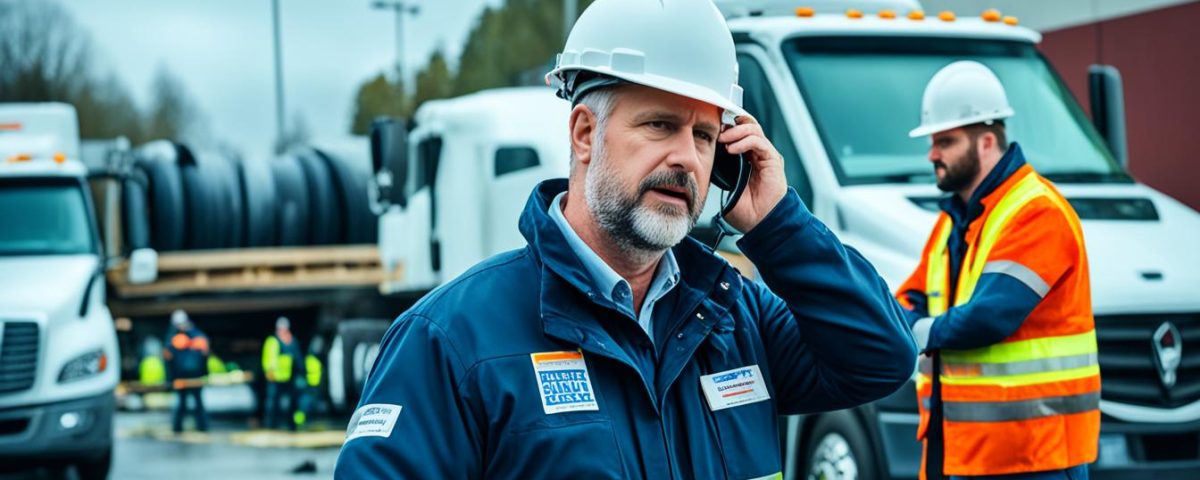- Auto Body Repair - Collision Center
- Leon Valley (210) 680-1987
- Walzem at IH 35 (210) 858-3630
- info@miraclebp.com

How Vehicle Wraps Can Protect Your Car’s Paint

Collision Repair Tips for Parents of Teen Drivers
Accidents with commercial fleets can cause big issues, such as lost money, harm to your name, and laws. Fleet managers must be ready to handle accidents well. We will look into the top ways to deal with fleet accidents. These include getting ready, how to respond, dealing with insurance, and why it helps to work with emergency services.
Key Takeaways:
- Fleet accidents can seriously hurt businesses, leading to financial loss and legal problems.
- To lessen accidents’ effects and keep drivers and vehicles safe, planning how to respond to accidents is crucial.
- Planning means making a full safety plan, training drivers, using safety measures, and checking your insurance.
- If an accident happens, the main focus is on safety. Call for help, collect info, and tell those in charge of the fleet.
- When dealing with insurance, quickly report, work with adjusters, and keep good records of damage and costs.
Preparing for Fleet Accidents
Accidents affect fleet business and can cause money and reputation loss. Yet, you can lessen this through preparation. Planning and preventing accidents prepares your team for a quicker and more effective response.
To prevent accidents, it’s key to have a detailed safety plan. It should cover how to prevent accidents, what to do if one happens, and how to recover. This plan must include:
- Driver Training: Make sure your drivers know safety rules well. They should get training on how to drive defensively and handle vehicles safely. Regular training helps them keep these skills sharp and reduce accident risks.
- Implementing Preventive Measures: Put in place steps like regular checks on your vehicles. This makes sure they’re in top shape, with working brakes, tires, and lights. Checking vehicles regularly stops accidents that might happen because something breaks down.
- Utilizing Advanced Safety Technologies: Add modern safety tech, like systems that help avoid crashes, to your vehicles. These tools warn drivers of dangers, making accidents less likely. This step is crucial in reducing collision risks.
It’s also vital to always check and possibly update your fleet’s insurance. Good insurance helps in case of accidents, covering costs and liabilities. Make sure your policy fits your fleet’s size and needs, including coverage for rented vehicles.
With a strong safety plan, ongoing training, and regular maintenance, you can prevent accidents in your fleet. These steps not only keep your drivers safe but also safeguard your business and keep operations smooth.

Responding to Fleet Accidents
In an accident, making sure everyone is safe comes first. Fleet managers and drivers must act quickly to protect people. Move the vehicles to a safe spot to avoid new accidents or harm. Then, get in touch with emergency services right away. They will help to calm the situation and provide medical care if needed.
It’s important to gather info while waiting for help. Get names, contact details, vehicle plates, and insurance info from everyone involved. Also, try to get statements from any witnesses. This info will be key for insurance and legal claims.
Don’t forget to inform fleet management without delay. They can offer help and advice. They need to fully understand what happened to deal with the event’s repercussions on operations. This helps them make plans to keep the business running smoothly.
A fast and well-organized response to accidents is crucial. It lessens the risks and avoids long-term problems. Safety, calling emergency services, taking down necessary information, and telling fleet management are all vital steps. They help manage fleet accidents with care and quickness.

Key Actions in Responding to Fleet Accidents:
- Prioritize safety by moving vehicles to a safe location and away from traffic.
- Contact emergency services to report the accident and request assistance.
- Document the accident by gathering essential information, including names, contact details, and vehicle information.
- Notify fleet management promptly to provide detailed information about the incident and any potential impact on operations.
Insurance Claims Procedures
Dealing with insurance claims is crucial for fleet managers. It helps them reduce financial damage after an accident. It’s key to tell your insurance company about the accident quickly, giving them all the details. Doing this starts the claims process right away, making things run smoothly.
Working closely with claims adjusters matters a lot. They review the damage and figure out what payment is fair. To make things easy for them, share everything you have, like accident details, pictures, and repair costs. This way, they can check your claim thoroughly.
It’s important to keep records of all your costs. Save all your receipts, repair bills, and any other paperwork. These records prove what happened and how much it cost. They make it easier for your insurance company to see your claim is valid, helping things move faster.
Sometimes, hiring a lawyer who knows about vehicle accidents is needed. This is especially true if there are tricky legal matters or problems with the insurance. A lawyer can help you navigate these challenges and make sure your rights are protected.
During the claims process, stay on top of your claim. Keep an eye on its progress and deal with any problems quickly. Being proactive can smooth the process and lead to a fair outcome.
Partnering with Emergency Service Providers
Having the right emergency partners is crucial for your fleet. Fast Fleet is here to help. We provide services that boost your fleet’s ability to handle emergencies, ensuring you’re always ready and confident.
24/7 roadside assistance is our specialty. Know that help is just a call away, no matter the time. Our professionals are always ready to quickly fix breakdowns and get your vehicles moving again.
If a major accident happens, our professional towing services step in. Our skilled drivers safely move your vehicles to where you need them. This lets you focus on managing the situation and lowering downtime.
At Fast Fleet, we excel in mechanical and trailer repairs. Our expert technicians can tackle varied repairs. We aim to get your fleet vehicles running smoothly in a short time. We know quick repairs are vital to keep your operations going.
Our mobile services are a game-changer. We bring the repair expertise right to you. This speeds up the process and cuts down on the time your vehicles are out of commission. Your fleet’s productivity remains high.
Trusting Fast Fleet means your vehicles are well taken care of. Our fast and reliable service meets your emergency needs head-on. This allows you to focus on fleet management and driver safety with peace of mind.
For the best in emergency services, choose Fast Fleet. Contact us to boost your fleet’s readiness for emergencies. Discover how much of a difference the right emergency service makes.
Conclusion
To deal with fleet accidents, taking a broad approach is key. It’s vital to focus on fleet safety and how to respond in emergencies. By following the best ways to avoid accidents and preparing for them, fleets can safeguard their drivers and assets.
Having trustworthy emergency services at your side boosts how well your fleet can act during accidents. This means quick and skilled help is there when you need it most.
Fleet safety is a big deal, and accidents can really shake things up. That’s why we suggest partnering with experts in fleet services. They should have a strong history in handling accidents. Together, we can reduce the accident’s effects, keeping drivers safe and fleet work going.
Accidents happen, but being ready and teaming up with the right people can change the game. Put safety first, be ready to respond to accidents wisely, and always choose reliable partners. A strong safety plan for your fleet is crucial. It helps manage crises and ensures drivers’ safety. We’re here to offer our know-how and help you make your fleet safer and more protected.


